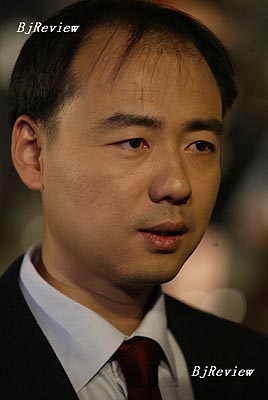
In a move that shows China is getting serious about bringing to light companies that flagrantly flout the regulations surrounding water pollution, a number of multinationals were recently blacklisted by a Beijing-based non-governmental organization. Ma Jun, Director of the Institute of Public and Environmental Affairs (IPE), led his group to update China's first-ever database of water polluters, Chinese Water Pollution Map, and published them at www.ipe.org.cn.
The initiative saw the figure of 33 offenders in 2006 rising to almost 100 violators this August. And it's not the small fry who are to blame. Well-known foreign companies like Pepsi-Cola, Samsung, 3M and General Motors, Kentucky Fried Chicken, Pizza Hut and Japanese-invested Kao, along with global chemical conglomerates, DuPont, Degussa and Ciba, are all named and shamed.
Based on information released by the State Environmental Protection Administration, the state environmental watchdog, over the past four years, Ma and his IPE group endeavored to raise public awareness of the severe increase in environmental degradation. "Multinational companies should not lower their environmental standards after entering China," warned Ma. "Their parent companies at home are often models of environmental protection work. But some of them seem to have slackened their efforts here in China."
Ma attributed this to weak law enforcement and supervision that have left loopholes for offenders to exploit. According to him, the key purpose of the database is to publish the names of polluting companies to pressure them into shouldering the responsibility for environmental protection.
Ma's credentials in the field of environmental work are impressive. He began a journalistic career in 1993 at the Beijing Bureau of Hong Kong's South China Morning Post, which gave him an opportunity to personally witness China's environmental woes. In 1999, Ma's book China's Water Crisis, in which he investigates China's dwindling water resources in its seven biggest drainage areas, was hailed as the first real environmental wake-up call in the country.
In 2004, Ma entered Yale University as a visiting scholar. After making a comparison between China's environmental protection system with that of the Western world, he found that insufficient public involvement and accountability have been the major cause of China's current environmental problem. His initiatives inspired him to establish IPE, which is dedicated to information release and pollution prevention.
At the end of 2006, Ma was awarded the Green Chinese title and also selected as one of the top 100 influential people of 2006 by Time magazine.
"China's low standards and primitive environmental conditions should not be an excuse for these international enterprises."
William Valentino, official from the European Union Chamber
of Commerce in China, who is in charge of corporate responsibility
"There is now more awareness of environmental rights and the rights of people as citizens."
Ma told The New York Times, quoting Time magazine, in which
his profile was a man who would save the Chinese people
as a water guardian Mr. Green Names and Shames
"Importantly, public expectations about inflation have risen in recent weeks, so the PBOC (People's Bank of China) has to fight the expectations battle."
Stephen Green, a Standard Chartered Bank senior economist, responding to this year's fourth interest rate hike by China's central bank aimed at stabilizing inflation and better directing the issuance of credit
"If the temperature rises 2 degrees Centigrade, flooding, starvation and the fragility of the ecosystem in many other aspects are expected to worsen notably."
Wang Shourong, Deputy Director of the China Meteorological Administration, underlining the urgency of anti-global-warming measures after China put its first national program in this field
into force in mid-August
"The United States will not support ‘Taiwan independence' or any unilateral move toward that direction on the part of Taiwan."
Visiting U.S. Chief of Naval Operations Mike Mullen, reaffirming U.S. adherence to the one-China policy, in Beijing on August 21
"We've had some bad lending practices. There's not going to be a quick solution to some of the issues in the credit markets, but...we will work through these issues because we have an economy that's strong."
U.S. Treasury Secretary Henry Paulson, warning investors on CNBC television on August 21 that the subprime crisis-hit financial markets would improve only after a necessary period of adjustment
"Part of the fight against violence in Iraq lies with
the United Nations. France approves this path and we will assist in the direction."
French Foreign Minister Bernard Kouchner, speaking on August 20 during the first visit of a French top diplomat to Iraq since the U.S.-led invasion in 2003 that France opposed | 